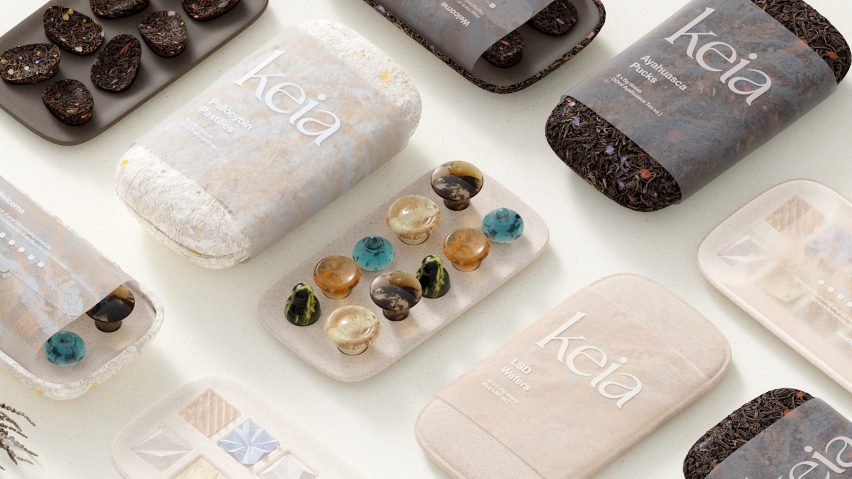
Layer imagines "unexpected" edibles for microdosing psychedelics
Benjamin Hubert's studio Layer has developed a concept for an edibles subscription service that would deliver sweets and teas laced with tiny doses of hallucinogenic drugs, in anticipation of a future where the substances are legalised.
The Keia service would see users sign up to receive small, regular doses of a psychedelic, with the aim of improving their mental and emotional wellbeing.
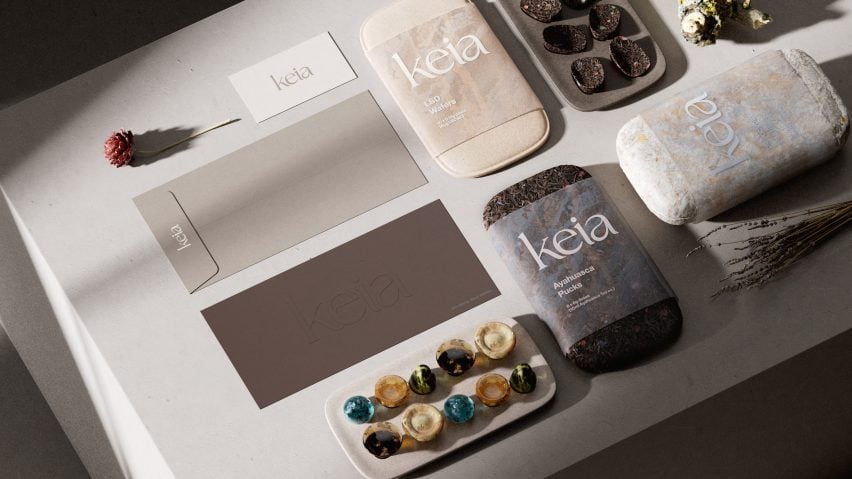
These would come in the form of three different consumable products: a rice wafer topped with lysergic acid diethylamide (LSD), a loose-leaf ayahuasca tea and a pastille containing psilocybin – the active ingredient in hallucinogenic mushrooms.
Layer envisions the products being packaged in biomaterials drawn from the natural world that are meant to inspire feelings of awe and appreciation.
Hubert says his team initiated the project to "start a conversation on a topic we find interesting" and to shake some of the stigma that surrounds psychedelics, which have been the focus of increased medical research in recent years.
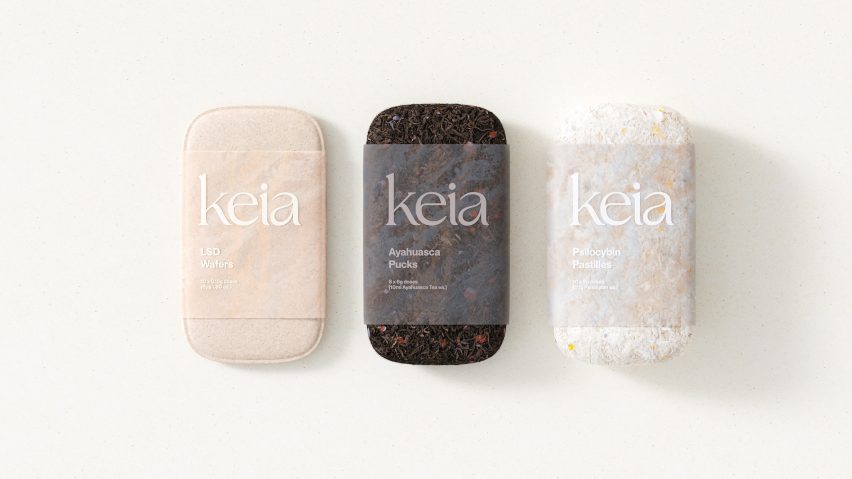
"The project hopes to look at ways we can dispel previously held notions of psychedelics and remove them from the context of more extreme hallucinogenic stereotyping," he told Dezeen.
"By reframing psychedelics into a less niche space and less alienating formats, perhaps we can change how accepted they can become in the mainstream whilst still keeping a touch of the unexpected."
Keia's psilocybin pastilles are imagined as gummies in a range of shapes, with swirling patterns reminiscent of glass marbles. Layer says preliminary research on microdosing suggests an edible like this could help to calm anxieties, increase creativity and improve empathy.
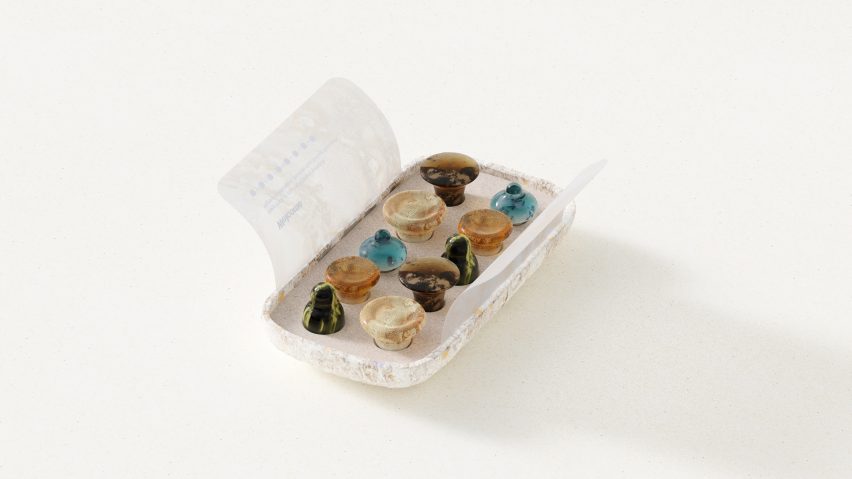
The LSD rice paper wafer, which the studio says has the potential to lift energy levels and improve focus, is pastel-coloured and folded into delicate origami-like shapes.
The final consumable is meant to be drunk rather than eaten and consists of a plant-based hallucinogenic brew called ayahuasca. Originally developed by indigenous communities in Amazonia, Layer claims it can help to relax stress levels and increase feelings of compassion and connection to others when taken in microdoses.
For the Keia concept, the necessary tea leaves and stems are compressed together into a pebble-like puck, dotted with the occasional bright flower petal.
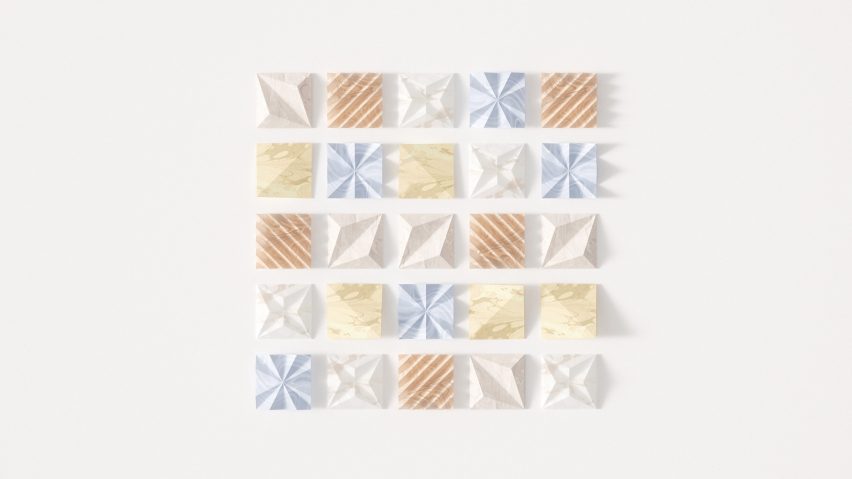
Each product is envisioned in boxes of eight to ten pieces – enough for one month's supply – with packaging that was designed to reflect its contents. The packaging for the psilocybin pastilles, for example, would be grown from hemp and mycelium, which is the rootlike structure of a mushroom.
The ayahuasca tea container would be moulded from pressed tea stems, coffee grounds and wheat bran, while the LSD packaging would be made using wheat farming waste, in a nod to the fact that LSD was born from experiments with the ergot fungus that grows on certain grains.
Some of the materials used in Layer's packaging concepts are within the capabilities of mass production already, although others are "a little further out", according to Hubert.
Keia's overall branding is meant to position psychedelics as part of the wellness market, without completely stripping the drugs of their distinctive qualities.
To evoke a connection to nature and mindfulness, Layer introduced elements such as the classical serif brandmark and a muted colour scheme informed by woodlands.
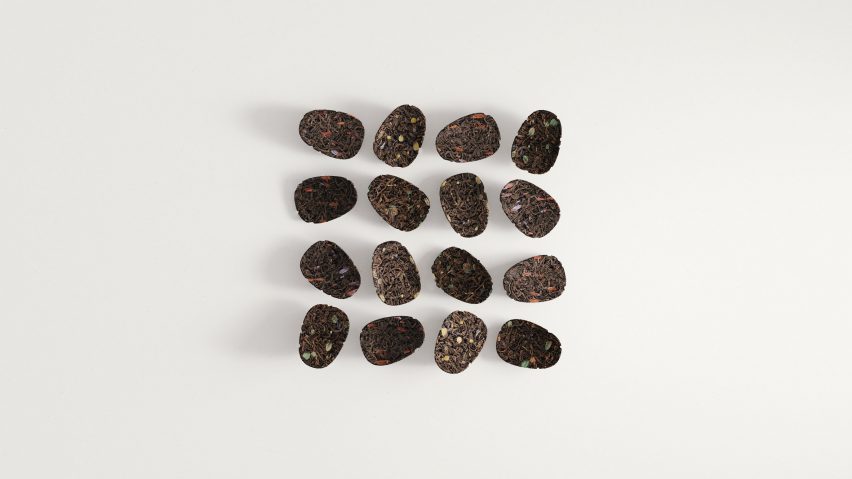
"It would be relatively straightforward to remove personality and move the designs into a safe, established consumer-expected vitamin or health-products space – think gummies and apothecary bottles," Hubert said.
"Maintaining a visually compelling and unusual blend of nature, medicine, consumables and materials whilst not being off-putting or reverting to hallucinogenic stereotyped ideas was the challenge."
While a service like Keia would currently be illegal almost everywhere in the world, Hubert says the prospect of legalisation was "close enough" to drive Layer to explore the project, with some US states having already decriminalised psilocybin.
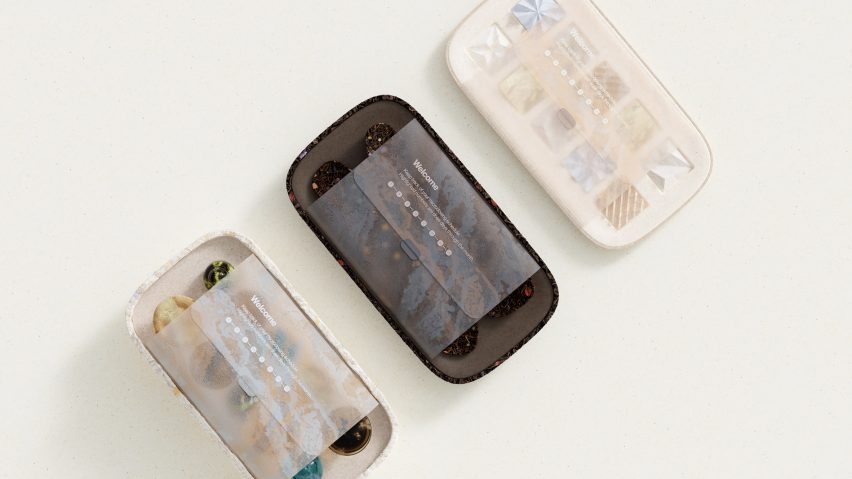
The psychedelic drugs market is projected to more than double in size between 2020 and 2027 to reach a value of $10.75 billion, according to a recent research report.
Another design studio that has imagined products for the future consumption of psychedelics is NewTerritory, which designed a concept for an inhaler that puts the focus on breathwork and mindful ritual.
These concepts share some commonalities with recent product designs for cannabis, which is also often positioned as a wellness product in the US and Canada through dispensaries such as Dosist and Edition.